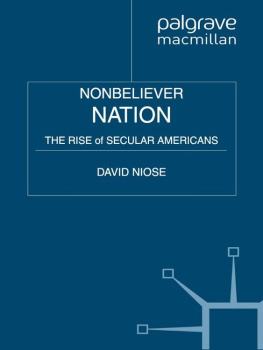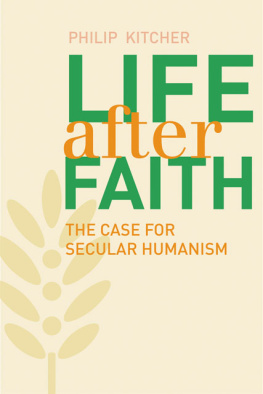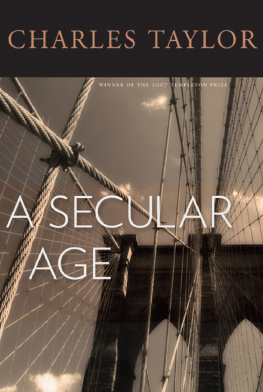ALSO BY PHIL ZUCKERMAN
Faith No More: Why People Reject Religion
Society Without God: What the Least Religious Nations Can Tell Us About Contentment
Atheism and Secularity (editor)
Invitation to the Sociology of Religion
PENGUIN PRESS
Published by the Penguin Group
Penguin Group (USA) LLC
375 Hudson Street
New York, New York 10014

USA Canada UK Ireland Australia New Zealand India South Africa China
penguin.com
A Penguin Random House Company
First published by Penguin Press, a member of Penguin Group (USA) LLC, 2014
Copyright 2014 by Phil Zuckerman
Penguin supports copyright. Copyright fuels creativity, encourages diverse voices, promotes free speech, and creates a vibrant culture. Thank you for buying an authorized edition of this book and for complying with copyright laws by not reproducing, scanning, or distributing any part of it in any form without permission. You are supporting writers and allowing Penguin to continue to publish books for every reader.
LIBRARY OF CONGRESS CATALOGING-IN-PUBLICATION DATA
Zuckerman, Phil.
Living the secular life : new answers to old questions / Phil Zuckerman.
pages cm
Includes bibliographical references and index.
ISBN 978-0-698-17008-7
1. SecularismUnited States. 2. United StatesUnited States. I. Title.
BL2747.8.Z83 2014
211'.60973dc23 2014009785
Names and other descriptive information of the individuals represented in this book have been changed in several instances.
Version_1
For Stacy, Ruby, Flora, and August
Contents
Introduction
A nd there it was again: the whole notion of nothing. It came at me twice in the same week, and from two different people.
The first time it came up was with Jill. We were standing and talking on the curb outside the studio where her son and my son both take cello lessons. Jill is in her early forties, from San Francisco, and she recently sold her modern furniture store in order to be at home more with her kids. We often chitchat when cello lessons are over and our sons are busy playing in the nearby bushes.
The other day as we were talking, religion came up. That was when Jill expressed what Ive heard so many times before: I just dont want my kids to be nothing.
Jill is one of tens of millions of Americans who are nonreligious. Her mom was Buddhist and her dad was Catholic, and she was raised with a fair amount of both traditions. But by the time she got to college, she knew that she didnt believe in God. Sure, maybe theres something more out therewho can say? But religion just wasnt her thing. Her husband felt the same way. And all was fine for several years.
But lately, with her kids being three and six, things have somehow started to feel different. Jill is a little worried. She told me that she was considering sending her kids to some church, perhaps the local Catholic church. But I could tell that she was conflicted. When I asked her why she was contemplating sending her kids to church if she didnt feel 100 percent about it, she said, I want them to get some morals. I think thats important.
But your children can develop a healthy, durable morality without religion, I replied.
Yeah, I guess youre right. But still...
Being a secular parent myself, and having studied the hills and dales of secular culture for some time now, I know what gnaws at Jill. Im quite familiar with the angst that many such secular Americans experience: the feeling that maybe one is making a mistake by raising ones kids without religion. Even though Jill is living a meaningful, thoughtful, and ethical life without religious faith or affiliation, she nonetheless feels that if she doesnt impart some sort of religious identity to her kidsif they lack religious involvementthen they will be... nothing.
Oh, and immoral to boot.
A few days later, the matter of nothing confronted me again. This time it came from a religious woman. Her name is Beverly. She is in her late sixties. She describes herself as just Christian. We met at a picnic being thrown by mutual friends at a park near Pasadena. She asked me what I did for a living. I said that I was a professor at a small liberal arts college. She then told me that she was the programming director at the religious center of a large university, a place where students from all walks of faith can find community, attend services, meet with clergy, and so on. Beverly loves her job. She helps arrange religious events, she coordinates panels and discussions, she sets up volunteering and charitable opportunities, among other things.
When Beverly asked me what I studied, I said, Secular people.
Pause.
You know, I continued, people who live their lives without religion....
And then she calmly replied, Well, without religion, youve got nothing.
Now, mind you, there was nary of hint of snark or derogatoriness in her comment. It was said kindly and openly, a genuine expression of this womans lived experience, inner faith, and personal orientation. To Beverly, life without religious faith and involvement would be empty, desultory.
This association of secularity with nothingness runs deep. Many people assume that a life lived without religion is not only somewhat void, but intrinsically problematic. After all, how does one deal with death without religion? How does one cope with lifes troubles? Develop morals and ethics? Find community? Experience a sense of transcendence? These are extremely fair questions. And yet the idea that religion is the best and/or only option out there when dealing with such matters is simply untenable. The glaring truth is that millions of people live their lives without religionand they do so quite well. They arent living aimlessly, adrift in a vacuum of nihilistic nothingness.
Jill may not know it, or she may not conceive of it in terms of clearly articulated precepts, but her secular lifestyle is actually very moral and deeply grounded in ethical conduct. How she interacts with those around her on a daily basis, the choices that she makes as a mother, wife, neighbor, businesswoman, and citizen, and the ways she reacts to and appreciates the world around herall of these are linked to developing and expressing an empathetic spirit, caring about others and the wider world, being responsible and upstanding. And they are very much linked to the secular sensibility. For as the stories of the many nonreligious men and women presented in this book will illustrate, there are actually specific key virtues of secular living, and prominent pillars of secular culture, that enhance moral rectitude and promote human decency.
As for Beverly, while I didnt want to get into it at the picnic, what I would want her to know is that religion is definitely not the only avenue for people to live good, meaningful, or inspired lives. There are other, secular options.
A life lived without religion is not nothing. There are common attributes, characteristics, traits, and values one finds among nonreligious people, and within secular culture, that directly enhance individuals ability to cope with lifes troubles, allow for moments of fulfillment and existential awe, and even increase societal well-being.
Indeed, the foundational components of a secular orientation are both abundant and laudable: from encouraging pragmatic, reasonable problem solving to fortifying oneself against groupthink and a herd mentality, from deepening our attachment to the people and things of this world to sparking a soulful appreciation for the majesty of nature, from encouraging scientific inquiry to manifesting a humane empathy, from fostering a mature morality to engendering a serene acceptance of mortality, secularity offers individuals a rich, proud wellspring of both wisdom and wonder. And as the many men and women youll meet in the pages that follow will attest to, being secular is an affirming worldview and positive, purposeful life stance.


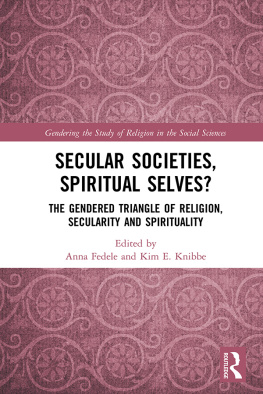
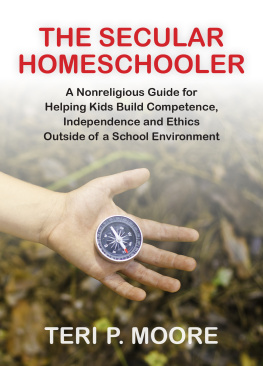
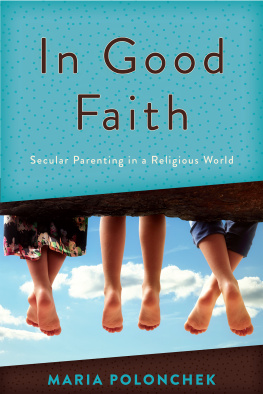
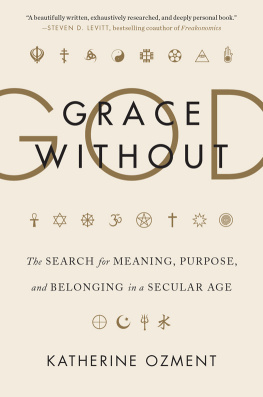
![Blackford - Freedom of religion [and] the secular state](/uploads/posts/book/167779/thumbs/blackford-freedom-of-religion-and-the-secular.jpg)
